Dog Diarrhea: What You Need To Know About This Messy Problem
13.12.2020.
If you are a dog owner, it is more than likely that you find yourself faced with dog diarrhea. It is a messy business and can easily get you worried about your dog’s health. A dog having tummy problems is not uncommon, especially if your dog likes to eat everything they come across. Dog diarrhea is often a topic that is not really pleasant to talk about, but dog owners should know more about it.
Chances are you came across this article because your puppy or dog has diarrhea, and the best advice anyone could give you is - call your vet.
But if you are worried and would like to quickly learn more, stay with us a bit more, and we will let you know what you need to know about your dog’s diarrhea problems. Let’s dig in.
Why do dogs get diarrhea?
There is plenty of reasons a dog can have diarrhea; some are serious, and others not so much. Here are the most common reasons dogs can get “the runs;”
- Bad diet - It is possible your dog got their paws on some garbage, or they simply ate too much food. Vets often call this “garbage toxicosis.”
- Intolerance - It is also possible that your dog doesn’t tolerate some specific foods.
- Allergy reaction - Allergies can cause your dog to get diarrhea.
- Diet change - Dogs don’t react like we do when their diets are changed, and it can take up to a few days for their digestive system to get used to the new food.
- Poisoning - If a dog gets poisoned by ingesting chemicals or poisonous plants, they can get diarrhea.
- Parasites - Common parasites can cause your dog to have stomach problems - parasites like Coccidia, Giardia, Hookworms, Roundworms, or Whipworms.
- Infections - Both viral and bacterial infections can cause dog diarrhea.
- Swallowing indigestible things - Toys are usually to blame, and if your dog eats them, they can get diarrhea.
- Medications - Dog’s stomach is not used to the medication and can easily get upset.
- Disease - Many diseases can cause stomach problems for your dog, especially the liver, kidney, bowel problems, and even cancer.
- Stress or anxiety - If a dog is under a lot of stress or is suffering from anxiety, it can cause an upset stomach and result in dog diarrhea.
The difference in digestive systems
To understand why dogs have diarrhea, you need to realize that their digestive system is a lot different from ours. The digestion in humans begins from the moment food enters our mouths. Our saliva contains enzymes that start digesting food right away, while the dog’s saliva contains enzymes meant to kill bacteria. That is why they can eat a lot of things that would nearly kill us.
Their stomach acid is about three times stronger than ours, and most of the dog’s digestion happens there. Their complete digestion should happen in under 10 hours, and the product should be a smelly, firm, well-formed stool.
Different types of dog diarrhea
There are different things you should remember about your dog’s stool if your dog has diarrhea. We know that this is not something you will enjoy doing, but it can really help your vet diagnose the problem. Different contents and consistency can indicate what is wrong with your dog, so close your nose, and open your eyes!
Different stool colors
A healthy dog’s stool should be chocolate-brown, but if they have eaten something colorful, that might come all the way through them. There are different colors you should keep an eye on, and the color of the stool is maybe one of the most important things. Here is a list of possible colors and what they mean;
- Black and Tarry - Black stool can indicate bleeding in the gastrointestinal tract. You should probably contact your vet.
- Yellow (or orange) - Yellow or orange dog stool is usually an indication of biliary or liver problems.
- Green - If your dog’s poop is green, that usually means they ate too much grass, but it can also mean they have gull bladder problems.
- Brown with red strips - This means that your dog most likely has a cut on or near their anus. Check that area and make sure you clean and disinfect it.
- Grey - Grey stool can also indicate biliary, but can also mean pancreas problems. Check if the stool seems greasy.
- Brown with “white rice” - People often get confused, especially if their dog hasn’t eaten rice recently. This could indicate that your dog has parasites, more precisely, a tapeworm.
How can I help my dog if they have diarrhea?
This is an important question dog owners should have at least one answer to. There are different things you could do, and the first thing most owners do is withhold food. Your dog can easily go without food for over 24 hours, and this is usually the first “line of defense” against dog diarrhea. That gives your dog’s GI system enough time to settle; just make sure you give them small quantities of water frequently.
Home remedies for dog diarrhea
Experienced dog owners usually have a couple of tricks up their sleeves for battling dog diarrhea. It would be best to be prepared if you are becoming a new dog owner or you are currently experiencing this problem with your dog. Here is a list of things you can give to your dog to help ease their upset stomachs.
- Rice “soup” - Boil rice in a lot of water and remove the rice. Give the water to your dog with a splash of broth to make it tastier.
- Yogurt - This is only good for dogs that aren’t lactose intolerant. Yogurt has good bacteria and will help balance their GI system.
- Probiotics - Probiotics are living bacteria that help digestion (they are often found in yogurt)
- Cottage cheese - The same as yogurt, helps restore balance to the upset digestion.
- Canned pumpkin - This is a bit of an odd remedy, but still very effective against dog diarrhea as well as constipation.
- Fennel herb - Fennel herbs have soothing effects and are great for an upset stomach.
- Boiled potatoes - Boiled potatoes should be peeled and cooled down before given to dogs.
- White rice - This is one of the oldest dog diarrhea remedies and something all dog owners should have at home to help their dogs with their stomach problems.
- Specialized foods - Different manufacturers provide different specialized foods that help dogs with this problem.
- Human medication - This is not something you should do before talking to your vet. Sometimes, the vet will recommend metronidazole to help ease their problems.
Some of these remedies might not work for your dog if your dog has diarrhea. You should ask your vet for advice and never do or give them medication without consulting them first.
After consulting your vet, feel free to try some of these remedies and see if any of them can help your dog with their upset stomach. We certainly hope there wasn’t that much of a mess you had to deal with and that your dog gets better if they are experiencing health problems.
Our Top Picks
If your dog has an upset stomach and you are all out of ideas to help them, check out these industrial foods that will surely help your puppy with their unpleasant stomach problems.
1. Purina Pro Plan Veterinary Diets EN Gastroenteric Fiber Balance Canine Formula
2. Royal Canin Large Digestive Care Dry Dog Food
3. Hill's Prescription Diet id Digestive Care Chicken & Vegetable Stew
4. Hill's Science Diet Wet Dog Food, Adult, Sensitive Stomach & Skin
World Dog Finder team

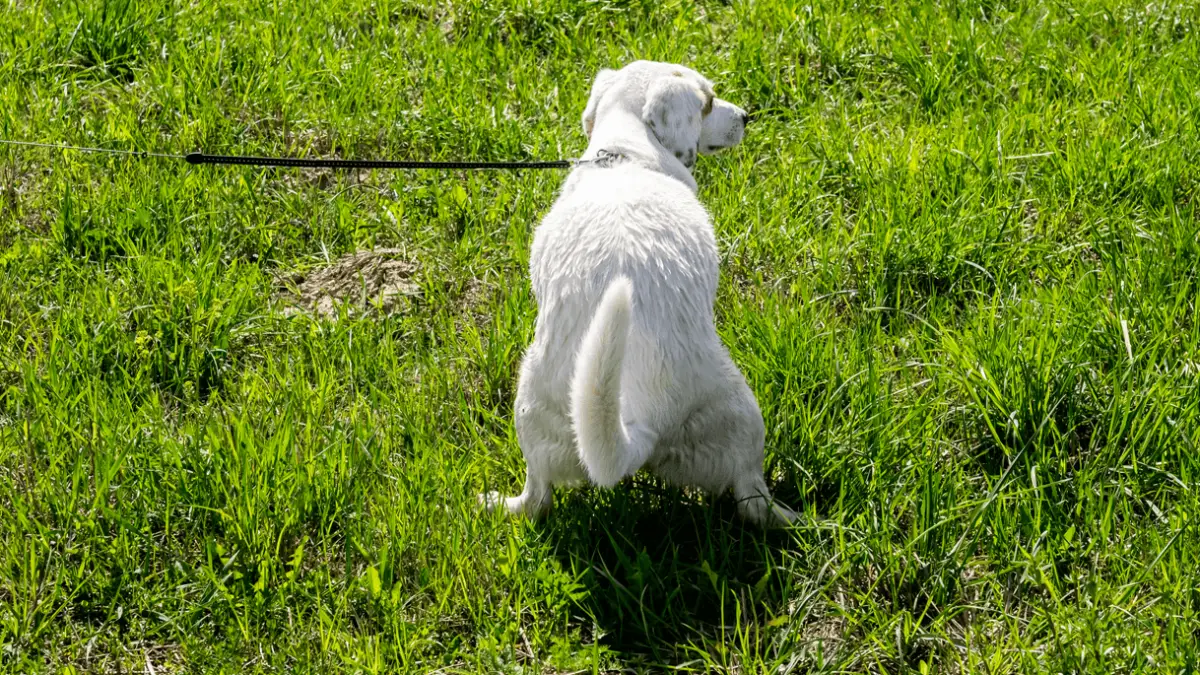
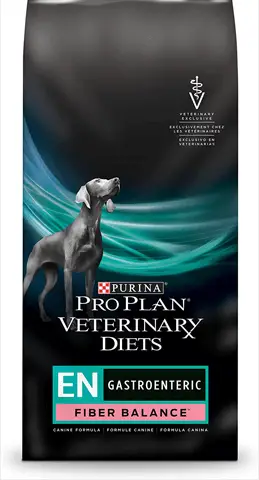
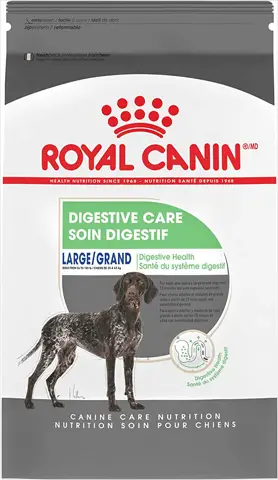
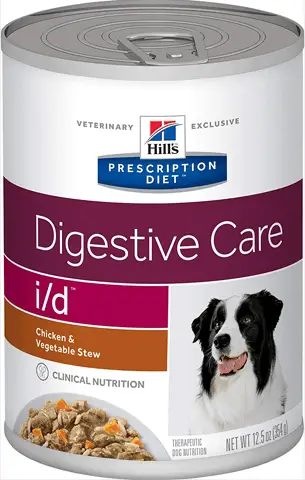
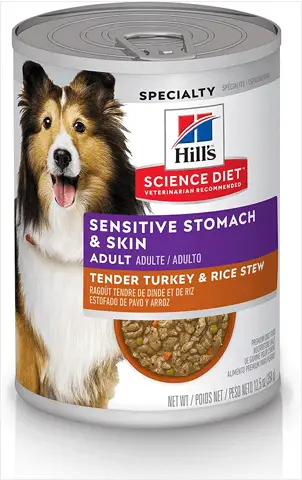





Share